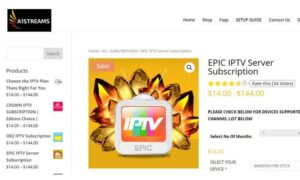Yissum, the Technology Transfer Company of the Hebrew University of Jerusalem, aims to promote the transfer of Hebrew University technology for the benefit of society, while maximizing returns to support research, education and scientific excellence.
Founded in 1964, Yissum is one of the first technology transfer companies worldwide – second only to the Weizmann Institute’s Yeda, founded in 1959, and many years senior to most American universities – which began their Technology Transfer Services activities following the Baye-Dole Act of 1980; European universities, which typically began these activities in the 1990’s and Japan, which only began in 1998.
Yissum provides the interface between the university’s researchers and industry, including:
· Licensing out of new technologies
· Creation and support of spin-off companies
· Industry-sponsored academic research
· Scientific services
These years of experience have borne fruit, as Yissum’s revenues place it among the top 15 universities worldwide. Close to $ 1 billion worth of products based on Hebrew University technology are sold worldwide annually. Yissum’s 2005 revenues were $ 35 million, of which $ 23.5 million in royalties Through its efforts in securing industry-sponsored research and other funding, Yissum contributes some 10% of the Hebrew University’s research budget, making the institution a true Technology Transfer University.
Charged with the protection and commercialization of the university’s intellectual property, Yissum has generated over 1,500 patent families over the past 20 years alone, of which 750 are currently active, including 250 which are licensed. In addition, Yissum holds equity in over 50 companies. In 2007, Yissum received 121 disclosures, submitted 91 patent applications and was granted 59 new patents worldwide.
On the commercialization side, over 400 projects were handled in 2007 and 418 agreements were signed, including 33 license and option agreements.
Yissum enjoyed the first Initial Public Offering of one of its companies on the Tel Aviv stock exchange in December 2005 when NasVax Ltd., based on technology from Prof. Chezy Barenholz, was successfully floated. The company now has $ 10 million in the bank and is in clinical trials with its influenza vaccine. This is not the first commercial success for Prof. Barenholz, who is also the developer of Doxil, sold by Johnson & Johnson (through its acquisition of Alza) in the United States and Schering Plough (under the trade name Caelyx) internationally. Doxil enjoyed worldwide sales of over $ 400 million in 2005.
Yissum, through the creation of Atox Bio Inc., was also proud to sponsor the submission to the NIH of a grant application by Prof. Raymond Kaempfer, who successfully received US$ 5.6 million for the biodefence applications of super-antigens. Yissum continues to support AtoxBio as it develops other applications of Prof Kaempfer’s technology.
BioCancell Inc., which was highlighted in last year’s report, successfully raised over US$ 3 million from private investors and the Hebrew University’s pension fund (as an independent investor), and successfully began clinical trials with its H19-based therapy in patients suffering from bladder cancer.
Following a change of management at the end of 2005, Yissum has announced some organizational changes aimed at providing the university’s researchers with better, more focused service. In addition, Yissum is in the process of simultaneously identifying the university’s Top 30 most commercially-attractive projects, and at the same time raising funds to invest in taking these projects through the proof-of-principle phase in order to achieve significantly higher valuations and much superior terms for commercialization. 2006 promises to be an exciting year for Yissum.
Yissum is the Technology Transfer Company of the Hebrew University of Jerusalem. Over the past 40 years, Yissum has granted more than 400 technology licenses and is responsible for commercializing successful products that generate nearly $ 1 billion in worldwide sales every year.



